It is 25 years since the biggest charity organization of the Catholic Apostolic Exarchate in Bulgaria – Caritas Sofia – has been doing its charitable work focused on helping different disadvantaged social groups. Its work with young people with disabilities and the positive effect of art therapy on them naturally led up to a project called CaritArt, financed under “ELBA 2 – Developing Social Economy in South East Europe”.
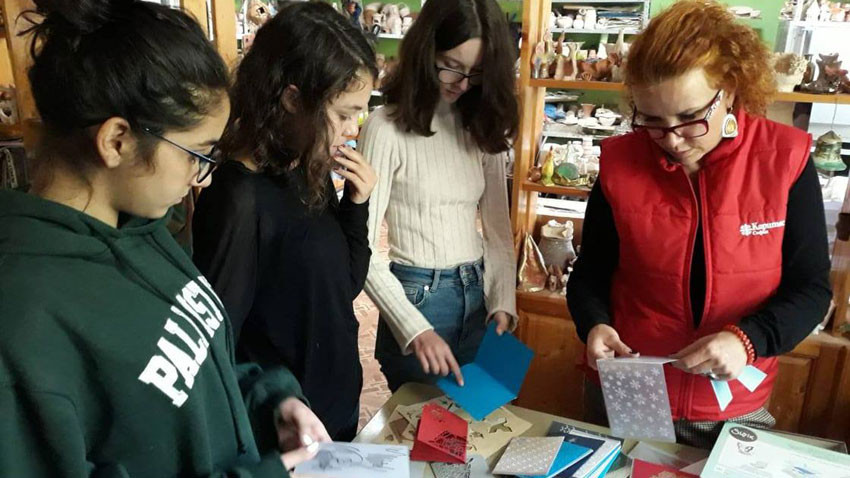
“We are making greeting cards, handmade by young people with disabilities and their parents,” says Katya Naydenova, CaritArt project manager and product designer. “The cards we are offering are for a variety of occasions – Christmas, New Year, Easter, or birthdays, name days, birth of a child. We have designs for corporate occasions, or small greeting cards for no particular occasion. We also have cards for non-Bulgarian days like St. Valentine’s Day, of Halloween.”
The young people use mostly paper, adding bows or other kinds of decoration. The people from CaritArt are very meticulous about quality, and the materials used, as well as the workmanship, because it is important to note that the items crafted by their talented hands, is not charity.

“It is social entrepreneurship,” Katya Naydenova explains. “They are people who want to work and they do it well, and they want to make some money by their work, however small the sum. We are not relying on charity, but on people liking our product and buying a pretty card from us and not from the bookstore, because, after all, we have a cause.”
There are usually six young people with disabilities and three mothers regularly working at the workshop on the territory of the Annunciation rehabilitation and integration day centre for young people with disabilities, where these greeting cards are made.
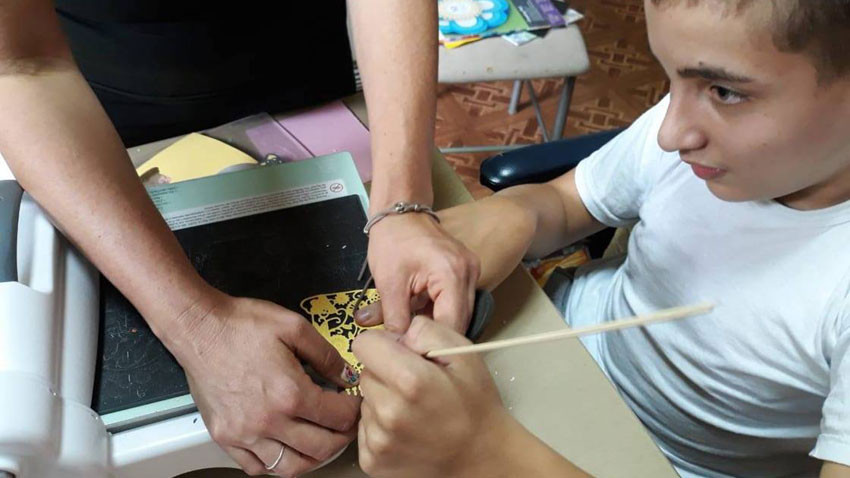
“The creative process is something that fosters self-confidence, helping these young people have faith in their own abilities. There is absolutely no doubt that people with disabilities have talents, but they have to be given encouragement,” Katya Naydenova goes on to say. “Our other aim is to help them get integrated into society, i.e. to reinforce their own confidence that they are capable of being members of society on an equal footing, creating a product of their own which people will like, choose and buy. But there is one more aspect to this initiative – that parents and children work together. This means parents are able to leave behind the terrible pressures of their everyday efforts as caregivers to their children, and can, together with them, become part of a process that is enjoyable and invigorating for both sides.”
Another item available from CaritArt is the so-called mass production card with a cause.
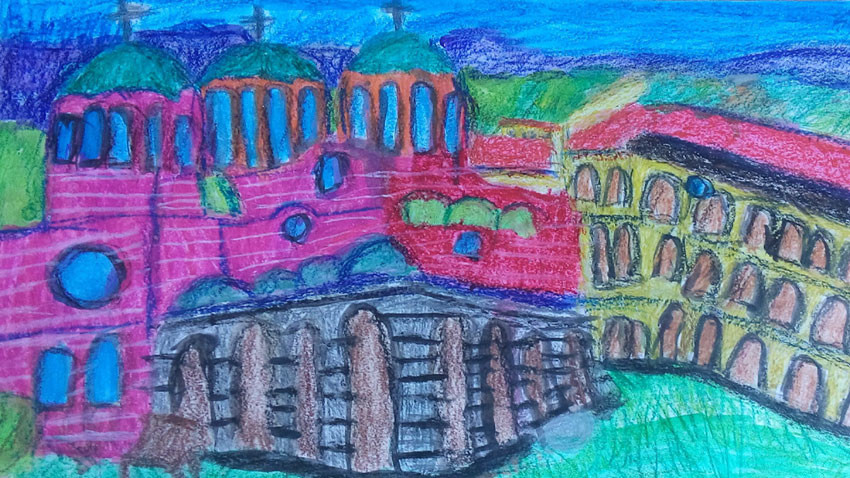
The initiative features four paintings by artists form the rehabilitation and integration centre, selected by competition and printed in card format, to be put on sale in different public places. The idea is to help the public see that there are young people with disabilities who are talented and skilled artists, that theirs is a rich inner world which they recreate in a deeply emotional way, and with an innate sense of beauty.
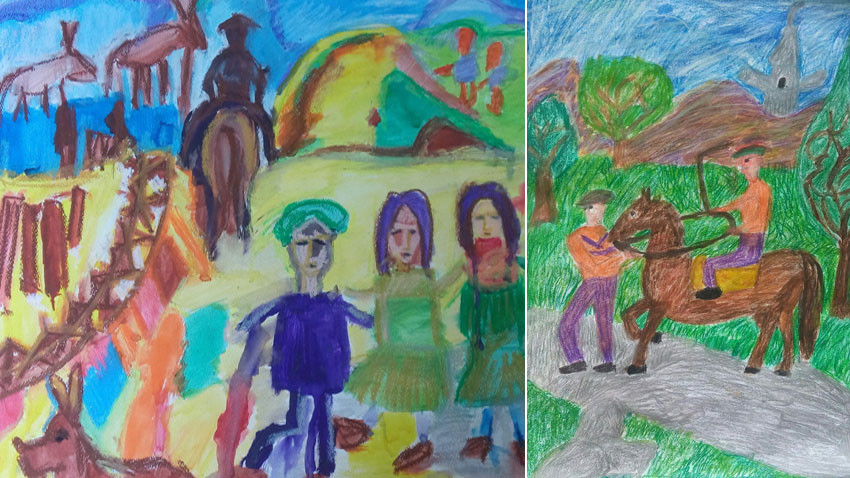
“The proceeds from the sale of cards will go to finance our enterprise – to buy materials for the cards, and to pay the people for the work they have put into their making. These are not sums they could live on, but it is a way to encourage them, an incentive, a way to boost their self-confidence,” Katya Naydenova says.
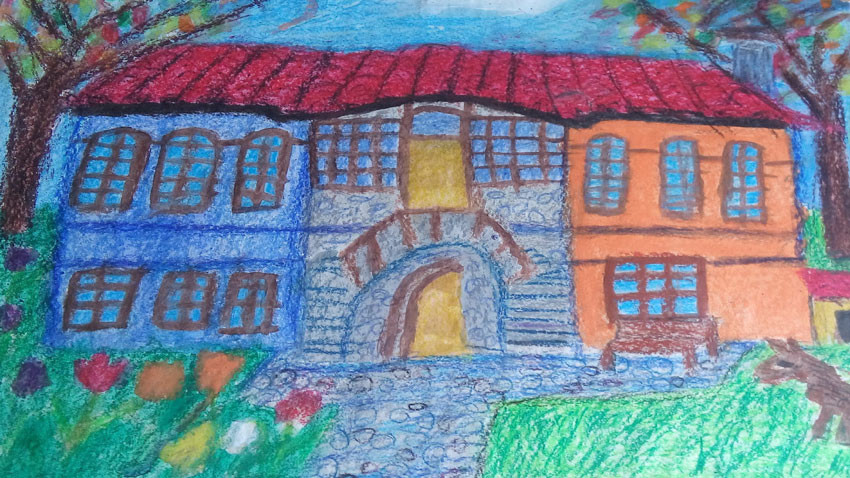
The superb cards made by the young people with disabilities are available from the CaritArt online store, or on their Facebook profile.
English version: Milena Daynova
Photos: private libraryBulgaria is constantly changing, say the founders of the Bulgaria Wants You initiative. For the past five years, they have been holding motivational meetings and discussions with Bulgarians living abroad, showing them a different side to their homeland..
Employment in the services sector is increasing, while demand for labor in sectors such as agriculture and industry is decreasing. Data from the National Statistical Institute reflect this trend, typical for the first quarter of the year. During the..
Southern Park 2 (behind the Earth and People museum) in Sofia is hosting the 5 th edition of the Asian festival dubbed “United in diversity”. The event – the result of the concerted efforts of the diplomatic missions of China, Indochina, the..
A delightful town, Pazardzhik, lies just 37 kms. from Bulgaria’s second biggest city, Plovdiv, and about 100 kms. to the Southeast of the country’s..
The Consulate General of Bulgaria in New York is opening its doors to interns and volunteers who want to gain a realistic idea of the diplomatic..
This year, Dilmana , a folklore dance group formed by our compatriots in Copenhagen, will visit Bulgaria for the first time to take part in the Na Armane..

+359 2 9336 661
